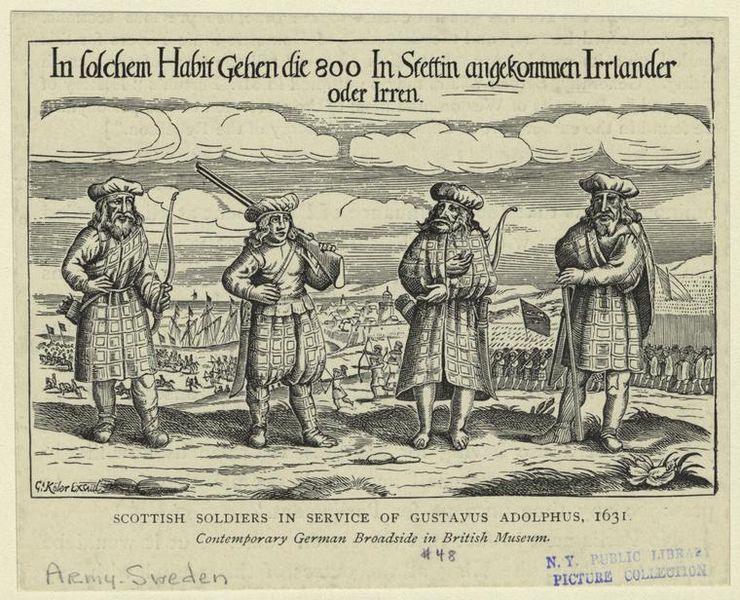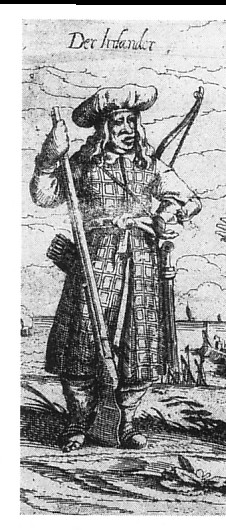It would be odd, I think, to Latinise John into Johannes but retain 'Grant', which is only slightly less obviously non-Latin - one would expect him to become 'Johannes Granticus' or 'Johannes Magnus' or something along those lines.
You are using an out of date browser. It may not display this or other websites correctly.
You should upgrade or use an alternative browser.
You should upgrade or use an alternative browser.
Was there a Scotsman at Constantinople in 1453?
- Thread starter Pangur Bán
- Start date
It would be odd, I think, to Latinise John into Johannes but retain 'Grant', which is only slightly less obviously non-Latin - one would expect him to become 'Johannes Granticus' or 'Johannes Magnus' or something along those lines.
The original name was given as Johannis, as in:
"At cum a fundamentis (o rem mirabilem) primum jam vallum anteque murale, mirando cum silentio sub-cavassent, Johannis Grande Alemani, ingeniosi militis, rerum bellicarumdoctissimi, quem Johannes Justinianus militiae dux centurionem conduxerat, industria et sagacitate opus detectum est, exploratorumque id firmatum relatione, animos omnium commovit. "
Link to the 1823 reprint here (under PDF-Version, 47 MB):
http://www.mgh.de/bibliothek/opac/?...vicem+collatae&recnums=338588&index=1&db=opac
Decide for yourself wether this entry justifies to name him "John Grant".
If somebody wants to check Sphrantzes take on the name, here is a link to the greek version:
http://khazarzar.skeptik.net/pgm/PG_Migne/Georgius Phrantza_PG 156/Chronicon.pdf
As my Greek is between non-existent and abysmal, any enlightment would be most welcome.
What is known is that Sphrantzes specifically mentions the German nationality of Johannes, and both Leonard of Chios and Georgios Sphrantzes were learned men. To assume that both would mistake a native English-speaker for a German is a pretty stretch, as eg. the Order of St. John had an English Langue (chapter).
Johannis here is simply the genitive of 'Johannes', as a genitive of possession - it's his hard-work and wisdom that's being noticed. Indeed this text makes him 'Johannes Grandus(?)', though the declension of 'grande' seems odd to me - it could be either vocative or ablative, but neither makes sense in context, so I suspect it's just incompetent Latin.
I would assume the "Grande" to be the 1500 Italian/Latin version of what was "Magnus" in Roman times. Modern Italian uses it in a similar way as English uses "great".
BTW: The Parisian edition also contains the tale of the fall of Constantinople as told by Gottfried Lange (Godefridus Langus, later Bishop), who studied at Bologna between 1452 and 1454 and published the story of teh fall of Constantinople in his book "Historia exidii et ruinae Constantinopolitanae urbis" before 1458 (when he died), probably even in 1453.
Here is the relevant part on Johannes from his book (sorry, no translation):
"Sed ingenio cujusdam Johannis Longi Januensis, de Justinianorum prosapia, qui,
cum trecentis armatis mare decursitans, in subsidium urbi venit, mira strenuitate
reparati sund: nam vasa vinaria humo repleta, in eam partem qua murus erat confractus,
reponebant. Quare Teucrus videns se deludi, parumque sic proficere, jubet minerarum fossores
atque magistros accersi, qui subterraneos meatus et vias occultas clam pararent, sicque
urbem furari cogitabat. Actum est per fossores ut lignea instrumenta adveherent,
atque solerti cura tentant fundamenta suffodere. Sed opus hoc detectum est industria et
sagacitate Alemani cujusdam Johannis Grande, ingeniosi militis et rerum bellicarum doctissimi,
qui et centurio at Johanne Justiniano, militia duce, conductus erat. Sicque repulsi
igne sulfure hostes e latebris et viis subterraneis, spe et opinione sua sunt frustrati."
It looks largely like a rephrasing of the content from Leonard of Chios, though at other parts he adds to the story. He was certainly not present at Constantinople but likely had access to first or second hand reports through refugees. The edition also mentions Johannes in its register of persons - cross referenced with Sphrantzes as follows:
"Johannes grande
Natione Germanus, machinarius insignis, potissmumque in machinis
bellicis et igne Graeco conficiendo egregius"
This, of course, is just the take of a 1823 French historian.
BTW: The Parisian edition also contains the tale of the fall of Constantinople as told by Gottfried Lange (Godefridus Langus, later Bishop), who studied at Bologna between 1452 and 1454 and published the story of teh fall of Constantinople in his book "Historia exidii et ruinae Constantinopolitanae urbis" before 1458 (when he died), probably even in 1453.
Here is the relevant part on Johannes from his book (sorry, no translation):
"Sed ingenio cujusdam Johannis Longi Januensis, de Justinianorum prosapia, qui,
cum trecentis armatis mare decursitans, in subsidium urbi venit, mira strenuitate
reparati sund: nam vasa vinaria humo repleta, in eam partem qua murus erat confractus,
reponebant. Quare Teucrus videns se deludi, parumque sic proficere, jubet minerarum fossores
atque magistros accersi, qui subterraneos meatus et vias occultas clam pararent, sicque
urbem furari cogitabat. Actum est per fossores ut lignea instrumenta adveherent,
atque solerti cura tentant fundamenta suffodere. Sed opus hoc detectum est industria et
sagacitate Alemani cujusdam Johannis Grande, ingeniosi militis et rerum bellicarum doctissimi,
qui et centurio at Johanne Justiniano, militia duce, conductus erat. Sicque repulsi
igne sulfure hostes e latebris et viis subterraneis, spe et opinione sua sunt frustrati."
It looks largely like a rephrasing of the content from Leonard of Chios, though at other parts he adds to the story. He was certainly not present at Constantinople but likely had access to first or second hand reports through refugees. The edition also mentions Johannes in its register of persons - cross referenced with Sphrantzes as follows:
"Johannes grande
Natione Germanus, machinarius insignis, potissmumque in machinis
bellicis et igne Graeco conficiendo egregius"
This, of course, is just the take of a 1823 French historian.
Traitorfish
The Tighnahulish Kid
My understanding is that Johnny was employed in the capacity of a siege engineer. And as Star Trek TOS taught us, all engineers are Scottish. So that settles it.
Traitorfish
The Tighnahulish Kid
Black Scotsman and black Klingon Scotsman, obviously. They had American accents because universal translators or something.
Traitorfish
The Tighnahulish Kid
...Dammit, you've got me there.
ParkCungHee
Deity
- Joined
- Aug 13, 2006
- Messages
- 12,921
No, no, I got this.
Geordi was a Negroid, which, as cutting edge 19th century science tells us, are the very people who brought Gaelic over from Spain into Ireland and Scotland, which accounts for their obvious physical and cultural similarities.
So Geordi is just the Scottiest of Scots.
Geordi was a Negroid, which, as cutting edge 19th century science tells us, are the very people who brought Gaelic over from Spain into Ireland and Scotland, which accounts for their obvious physical and cultural similarities.
So Geordi is just the Scottiest of Scots.
ParkCungHee
Deity
- Joined
- Aug 13, 2006
- Messages
- 12,921
That's what I said.
Domen
Misico dux Vandalorum
Certainly there was. Scotsmen were EVERYWHERE:
http://auldearn1645.blogspot.com/2012/04/stettin-print-of-1631.html

But they were sometimes mistaken for Irelanders (or maybe they were just similar):

Musket and bow - nice combo.
http://auldearn1645.blogspot.com/2012/04/stettin-print-of-1631.html

But they were sometimes mistaken for Irelanders (or maybe they were just similar):

Musket and bow - nice combo.
Traitorfish
The Tighnahulish Kid
Until the 18th century the Irish and Scots Highlanders were pretty much the same people. They spoke the same language (even today, some Northern dialects of Irish are more similar to Scottish Gaelic than standard Irish) and had a largely identical material culture, give or few a features like the belted plaid. The differences were mostly political, in that "Scots" owed their loyalty to the Scottish crown while "Irishmen" owed it to the Irish crown, a distinction which wasn't likely to hold much weight if the individuals in question were outside of the British Isles altogether. Religious differences appeared from the sixteenth century, as Highlanders joined the Reformation, but most of them adhered to a very Catholic strain of Episcopalianism rather than the Presbyterianism of the Lowlands, and many simply remained Catholic, so it didn't introduce the sort of clear cultural differences you'd see between Scotland and Ireland in the nineteenth century.But they were sometimes mistaken for Irelanders (or maybe they were just similar):
Scottish documents didn't even consistently distinguish between the Irish and Scottish Highlanders until the sixteenth century- they also didn't distinguish between Englishmen and Lowland Scots- so it makes sense that writers on the Continent would be slower to pick on a relatively new naming-convention.
Pangur Bán
Deconstructed
Until the 18th century the Irish and Scots Highlanders were pretty much the same people. They spoke the same language (even today, some Northern dialects of Irish are more similar to Scottish Gaelic than standard Irish) and had a largely identical material culture, give or few a features like the belted plaid. The differences were mostly political, in that "Scots" owed their loyalty to the Scottish crown while "Irishmen" owed it to the Irish crown, a distinction which wasn't likely to hold much weight if the individuals in question were outside of the British Isles altogether. Religious differences appeared from the sixteenth century, as Highlanders joined the Reformation, but most of them adhered to a very Catholic strain of Episcopalianism rather than the Presbyterianism of the Lowlands, and many simply remained Catholic, so it didn't introduce the sort of clear cultural differences you'd see between Scotland and Ireland in the nineteenth century.
The one thing you can't do will the Scots is generalize about them. The Argyll Campbells were the staunchest presbyterians. First printed text in a Gaelic language is a translation of Book of Common Order by the Campbell's Galloway chaplain, John Carswell. Ironically, given the point you're making, modern Scottish Gaelic is was written in a form like Irish because Scottish protestants wanted to evangelize to the Irish. The adoption of the Irish script for the standard in Scotland was basically down to the Synod of Argyll ... that's why the Scottish is spelled like Irish rather than Manx Gaelic.
Scottish documents didn't even consistently distinguish between the Irish and Scottish Highlanders until the sixteenth century- they also didn't distinguish between Englishmen and Lowland Scots- so it makes sense that writers on the Continent would be slower to pick on a relatively new naming-convention.
The point you're making is surely correct, though I would like to note that the use of the same terminology to refer to Gaelic speakers of Scotland and Ireland only exists from about 1400; as surprising as it might be, the terminology of the early Christian era was not related chronologically.
Traitorfish
The Tighnahulish Kid
Scotland certainly packs in a lot of complication for such a small country.
Or maybe everywhere is this complicated, and Scotland just gets more attention.

Or maybe everywhere is this complicated, and Scotland just gets more attention.

{belated x-post edit} All countries are complicated, even -to a lesser extent perhaps- in those with large-scale ethnic cleansings that somehow uniformise a large region.
Thankfully, as the spelling of Manx Gaelic is horrible and lacks any ortographic depth, it's harder to decipher which word derives from which.Pangur Bán;13298931 said:The one thing you can't do will the Scots is generalize about them. The Argyll Campbells were the staunchest presbyterians. First printed text in a Gaelic language is a translation of Book of Common Order by the Campbell's Galloway chaplain, John Carswell. Ironically, given the point you're making, modern Scottish Gaelic is was written in a form like Irish because Scottish protestants wanted to evangelize to the Irish. The adoption of the Irish script for the standard in Scotland was basically down to the Synod of Argyll ... that's why the Scottish is spelled like Irish rather than Manx Gaelic.

